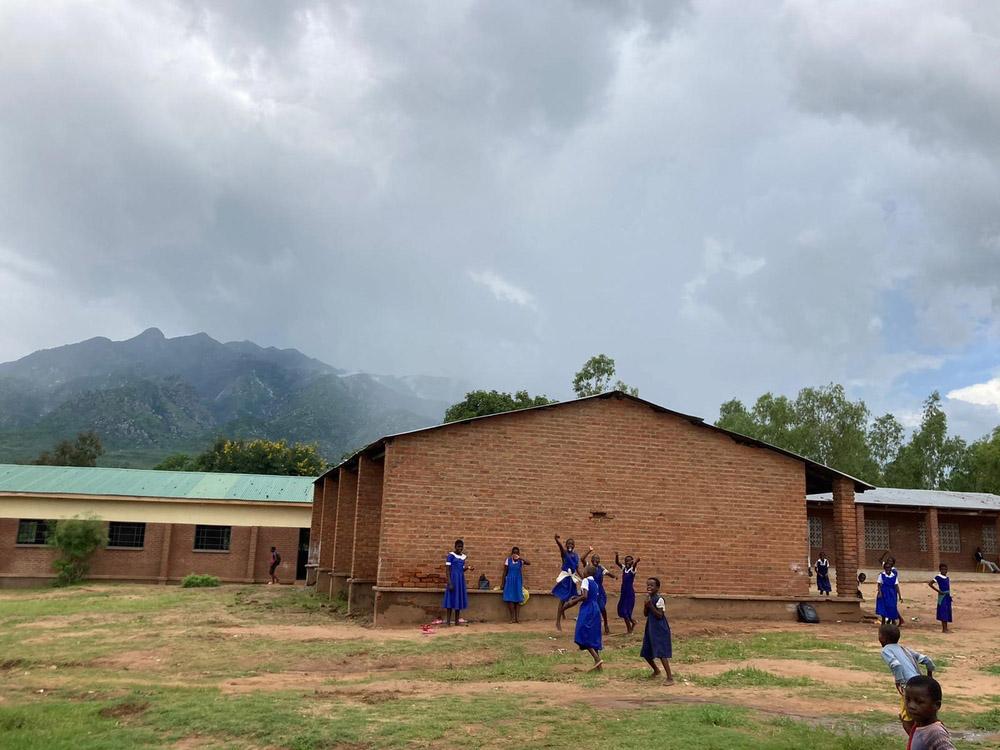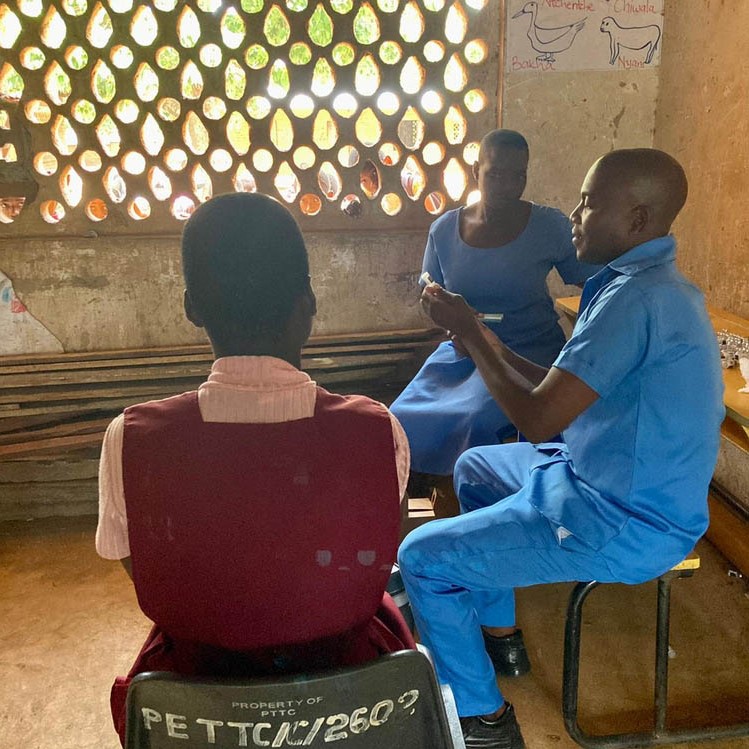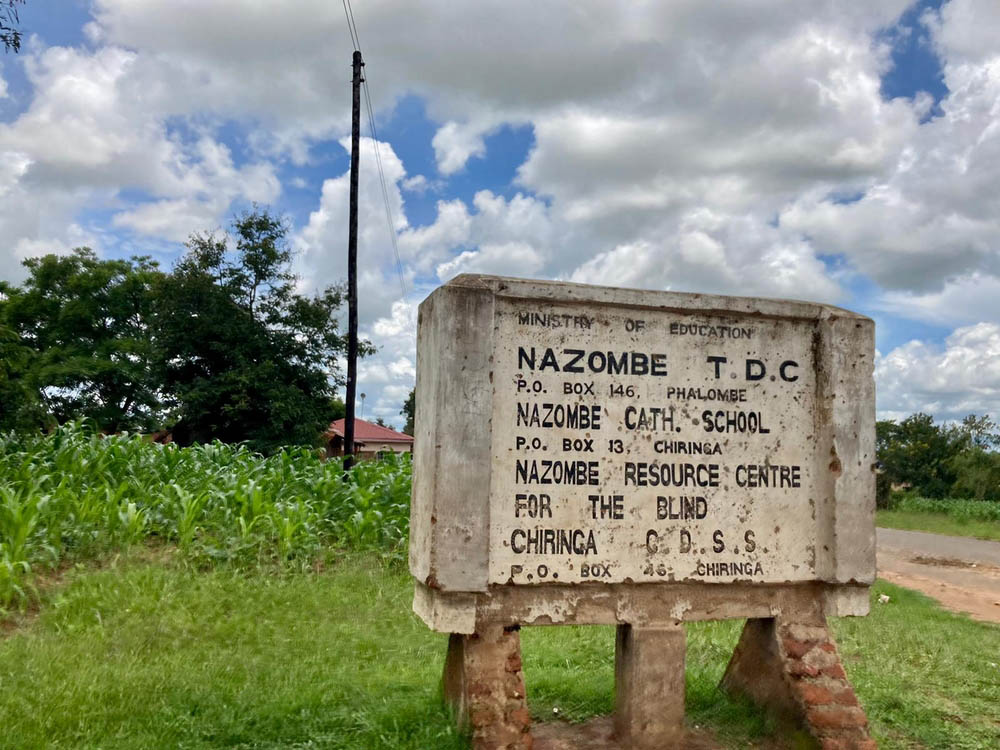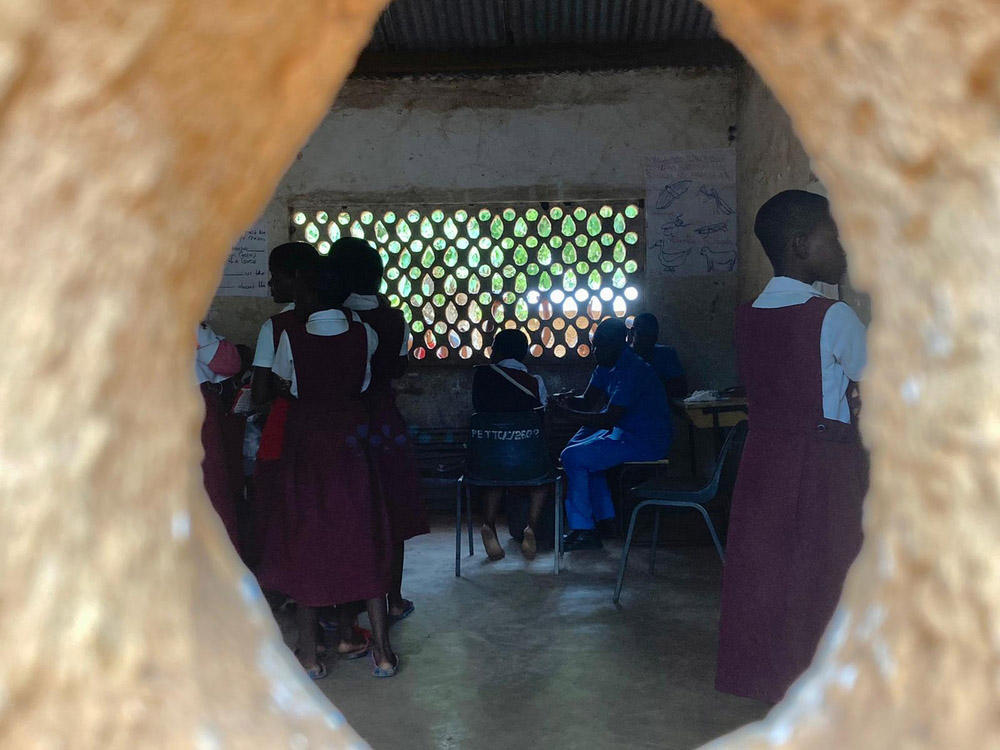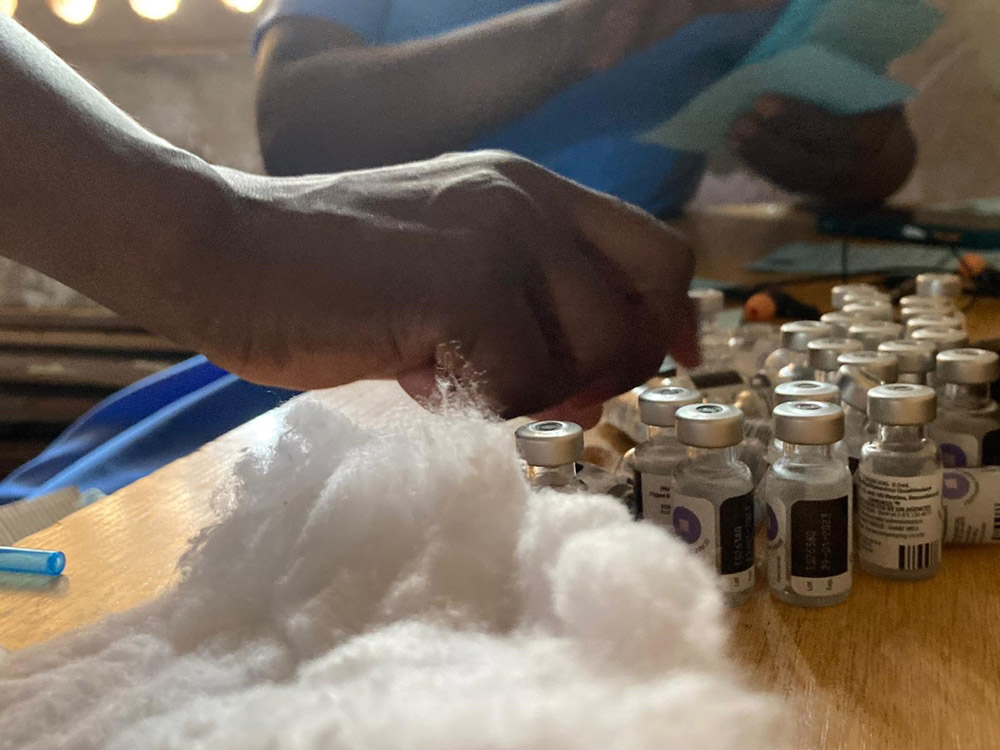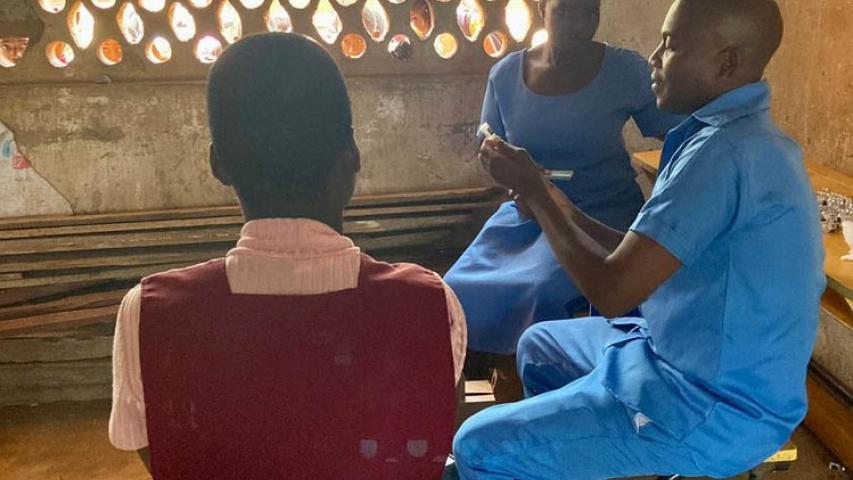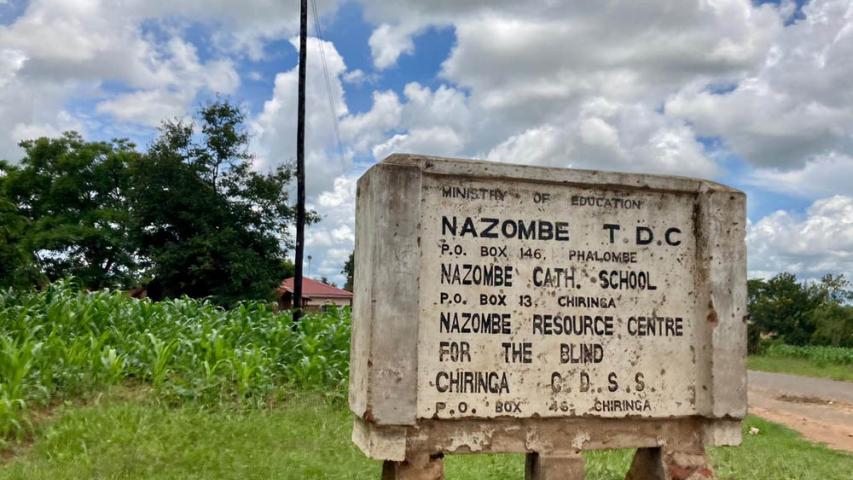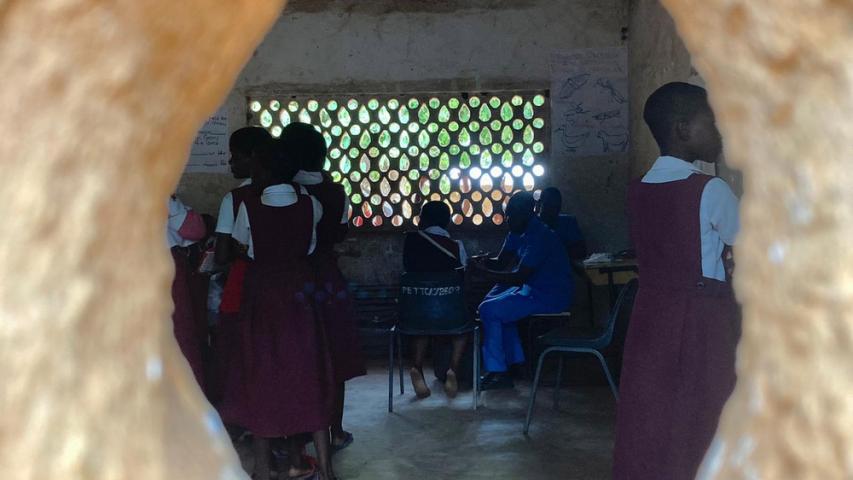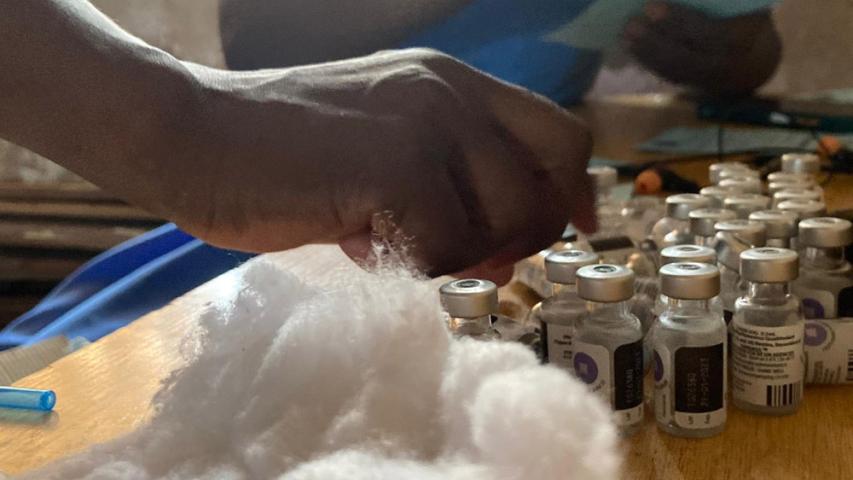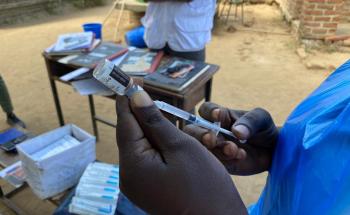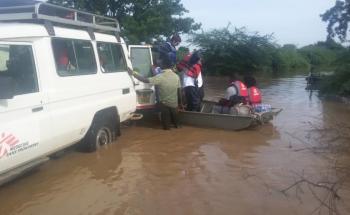Human Papilloma Virus (HPV) vaccination of young girls between 9 and 14 years old is the most efficient way to prevent cervical cancer among women in adulthood, according to World Health Organization recommendations. This catch-up vaccination campaign, targeting 30 000 young girls in the Chiradzulu districts in Malawi, is supported by the international medical humanitarian organisation Doctors Without Borders (MSF).
This vaccination is excellent news for the young girls of the districts. Malawi has the highest mortality rate related to cervical cancer in the world. However, we know that this cancer is highly preventable through HPV vaccination for all girls of this age.Dr George Chilinda, MSF onco-surgeon at Queen Elisabeth Central Hospital
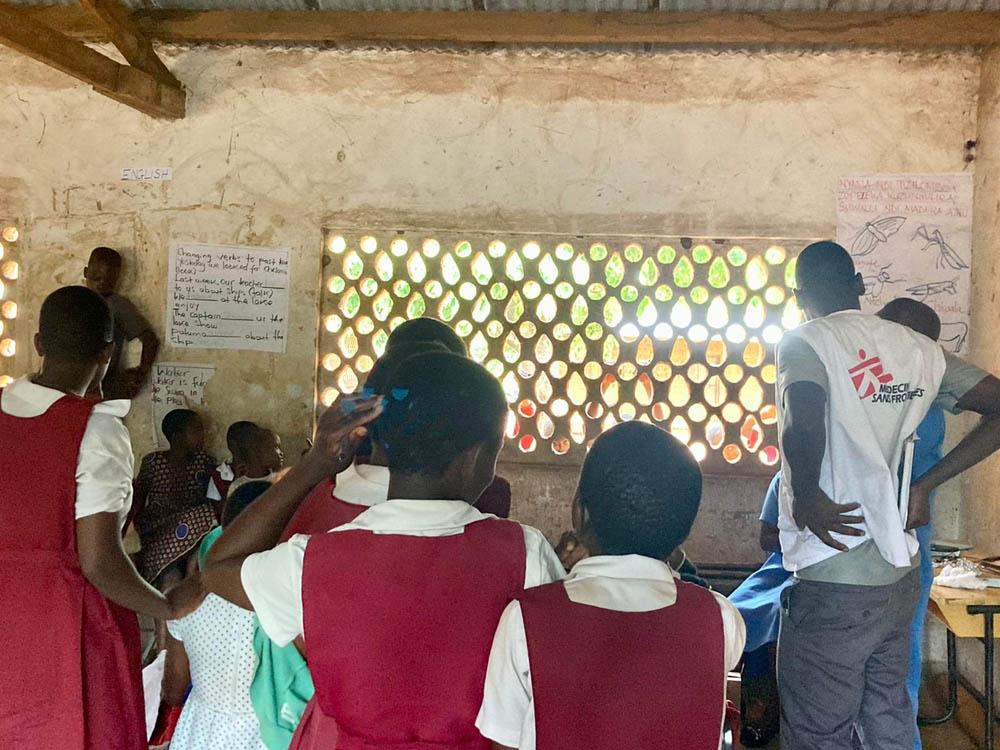
Among the cervical cancer patients we receive at the hospital, a lot of them arrive at a too-advanced stage of the disease to allow any curative treatment in our settings. This is very sad and frustrating when you know that vaccination, along with early detection, can prevent this disease from occurring or spreading.
As cervical cancer ranks high in Malawi, the need for prevention remains the main priority to reduce the cancer burden for women in the country. The disease is often triggered by the Human Papilloma Virus (HPV), which is transmitted most often during sexual intercourse. To prevent infection, the vaccine must be given prior to HPV exposure, meaning before the targeted population become sexually active. It is the most effective and reliable primary prevention technique.
Currently, we are supporting this vaccination campaign to support the district to fill the gap of missed opportunities for the girls who couldn’t access the vaccines in the past two years.Alice Authier, MSF deputy Head of mission in Malawi
“Currently, we are supporting this vaccination campaign to support the district to fill the gap of missed opportunities for the girls who couldn’t access the vaccines in the past two years. The vaccination campaign wasn’t very active during COVID time, for different reasons but mainly due to poor sensitisation and awareness of the importance of this vaccine as a prevention for cervical cancer. It is crucial that families know that, on a daily basis, they can access this vaccine in the health centres of their districts”, explains Alice Authier, MSF deputy Head of mission in Malawi.
However, the most effective way to reach out massively to the 9-14-year-old girls and prevent them from contracting the virus is to go to schools to offer the vaccination. To do so, MSF has been supporting the Ministry of Health to help reach most of the 30 000 young girls aged from 9 to 14 years old in schools in the Phalombe district. Sensitization on the need and the use of the HPV vaccine has been provided to 336 Health Surveillance Assistants of the Districts through 11 sessions.
The Headteachers and schools Health teachers of the 91 schools were also involved in raising awareness among the girls’ parents on that vaccine and helped organize the vaccination. This work will enable the vaccination campaign starting today and will continue until Monday 23rd.
Since 2017, MSF has been developing a comprehensive cervical cancer program in Malawi to improve access to vaccination, screening, early diagnosis, treatment and – if needed, palliative care for the women of Blantyre and Chiradzulu districts. The program aims to develop new approaches and targets all stages of the cervical cancer disease course.
Comprehensive cervical cancer control requires primary prevention (HPV vaccination), secondary prevention (screening and treatment of precancerous lesions), tertiary prevention (diagnosis and treatment of invasive cervical cancer), and palliative care. HPV vaccination is yet the most effective way to reduce cervical cancer burden and protect the next generation. It should hence be accessible nationwide for the 9-14 years old girls in Malawi, on a yearly basis.
